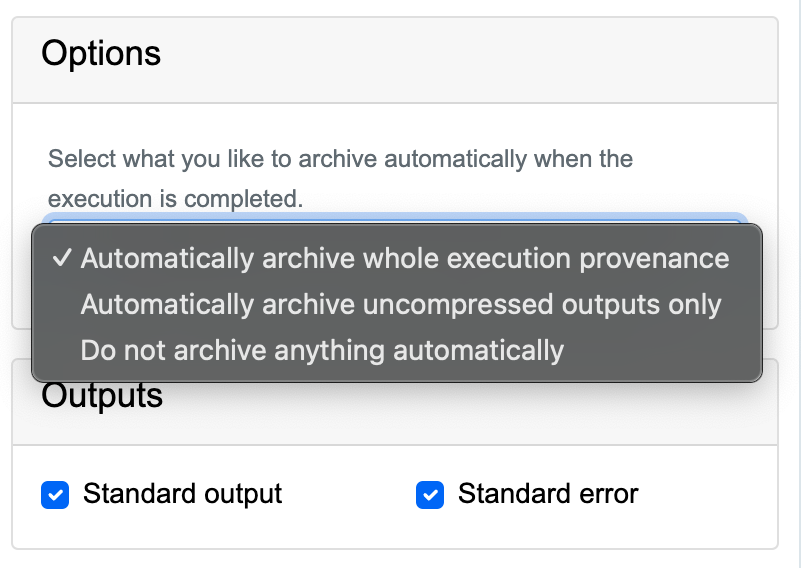Method Execution
Once a method is selected, the Method Execution form is populated with the inputs and options specific to the selected method.
Each method has its own predefined inputs, runtime, and parameters, which are defined during the method’s configuration.
Runtime
The runtime environment is defined by the ccpimage input, which specifies the Docker image to be used. This runtime is usually immutable, meaning users typically cannot modify it during execution, but in certain cases, flexibility may be allowed depending on the method’s configuration.
Input Parameters
The input parameters required for execution vary based on the method’s definition. Common types of inputs include:
ccpimage(Runtime): Specifies the Docker image or environment in which the method will run. This is predefined via theccpimageinput and is usually immutable.Input Files/URLs: Paths to input files or URLs, such as CSV files or other required data formats, depending on the method’s needs.
Input Parameters: These include specific configuration values such as probabilities, number of iterations, or other settings required by the algorithm.
Annotations: Metadata or tags associated with the execution, which can also appear in the output results, providing traceability across executions.
Options
In the Options section, users can select the automatic archiving behavior for their execution results. The following options are available:
Automatically archive whole execution provenance: This option will add to the archive the entire execution context, including inputs, parameters, and results.
Automatically archive uncompressed outputs only: This option will archive only the final outputs in an uncompressed format, without including additional details.
Do not archive anything automatically: No automatic archiving of the execution results will be done.
Outputs
You can configure what type of logs to capture during the method execution:
Standard output: Enable this option to capture all normal output messages generated by the method.
Standard error: Enable this option to capture any error or warning messages encountered during execution.
